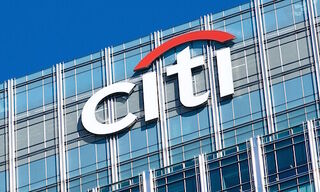What is the future for Globus? This question is particularly crucial for various cantonal banks, as it could become very costly for them. Significant write-downs may be imminent as early as next month. However, the Benko case continues to haunt the industry in other ways.
In a recent interview with «Welt am Sonntag,» the logistics tycoon and honorary Swiss citizen Klaus-Michael Kühne admitted to being lulled by René Benko. He then made a critical statement: «With my experience, I should have acted differently. I often ponder how this could have happened to me.»
Similar thoughts are likely being considered by countless Swiss bankers. Many of them have fallen for the charms of the Austrian real estate investor. Among them, besides Julius Baer, are numerous cantonal banks: from Aargau to Graubünden, Obwalden, Wallis, and the Zürcher Kantonalbank.
Although the media storm has subsided, the case is far from over for local financial institutions—quite the opposite.
Stagnant Inflow of New Funds
Julius Baer extended 606 million Swiss francs ($675 million) in structured loans to the Austrian's companies, making it one of the largest creditors. The Zurich-based bank took decisive action and parted ways with its CEO.
The move had an impact: The figures for the first quarter of 2024 were more encouraging than those of the previous year. However, the inflow of new funds is stagnating, particularly in Switzerland. According to financial circles, the lack of new money is causing significant concern for the company, especially since several customer advisors from Credit Suisse were hired last year and are now struggling under unfavorable conditions.
Discouraged Candidates
Furthermore, the traditional bank is clearly having trouble finding a successor for the ousted Philipp Rickenbacher. Initially, the board of directors, led by Romeo Lacher, intended to present the new CEO by the end of June 2024. Now it is July, and there is still no CEO in sight.
The Benko case undoubtedly plays a role in this, especially since the Swiss Financial Market Supervisory Authority (Finma) is still conducting an investigation related to the matter. This situation is likely to have deterred some potential candidates, according to banking circles.
Finma Investigation Weighs Heavily
It's clear that Julius Bär's room for maneuver is currently very limited. Although the news agency «Bloomberg» reported last Friday that the Swiss bank is interested in acquiring the German operations of the British financial group HSBC, this seems rather far-fetched in the current context. Apparently, a merger with the Swiss private bank EFG International also failed due to the Benko debacle.
Why the Globus Deal is Still Pending
The situation is different for the Swiss department store Globus, which was also part of Benko's empire. In 2020, the Austrian, through his Signa Group, acquired the department store chain from Migros with loans from several cantonal banks, Julius Bär, and the Thai Central Group.
Both Benko's Signa Group and the Central Group each owned a 50 percent stake. For some time now, there has been speculation that the Central Group, owned by Thai billionaire Tos Chirathivat, will acquire Signa's 50 percent stake. Such a move would make sense given the existing power dynamics. However, the deal has not yet been finalized, likely due to differing price expectations.
Will the Cantonal Banks Have to Write Down?
It has now become clear that the Signa Group inflated property prices with high rents to obtain larger loans. Chirathivat wants to lower the price as a result.
However, the banks are unlikely to agree to such a solution voluntarily. This would require them to write down their mortgages, which could trigger another wave of public outrage—potentially leading to personnel consequences.
Time is Running Out
The stalemate appears to persist, but probably not for long. The debt restructuring moratorium expires on August 12, 2024. It is expected that the administrator will sell Benko's 50 procent stake to the highest bidder. This would be the worst-case scenario for the banks: they would have to accept significant losses in any case.




























